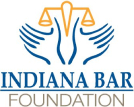
When we get ill or when someone we love needs medical care, we rely on the expertise and recommendations of our treating physicians. However, medical errors do occur more frequently than we would like to believe. What can be done to prevent them from happening?
Often, medical errors are not single missteps. Rather, they result from a series of small breakdowns that occur in the process of caring for a patient. If just one of those missteps is caught, then the medical error can be prevented.
As a team for victims of medical malpractice, we often hear from family members that they knew the treatment was wrong and that the doctor’s diagnosis didn’t seem right. Sometimes they spoke up, but they were ignored. Other times, they stayed quiet and trusted that the medical professionals knew what they were doing. However, medical providers are human, and humans make unintentional mistakes for many different reasons — especially in the fast-paced world of medicine.
How can you protect yourself and your loved ones from medical errors when in the emergency department or admitted to the hospital?
All the medical terms and diagnoses can be overwhelming and difficult to understand. However, there are some steps you can take to help prevent possible errors from happening when your loved ones are being cared for by medical professionals.
Have a Designated Family Member Acting as the Primary Advocate
Ask that the nurses and doctors include this person in any discussion about the patient’s treatment plan and working diagnosis. That person should be present whenever a doctor or nurse discusses diagnoses or treatment plans.
Speak Up if Things Do Not Seem Right
If you think the medical team is missing something, do not be afraid to say something to them. Family members usually have keen intuition about what might be going on with their loved one. Listen to your gut.
Ask ‘What Else Could Be Causing This?’
By asking this question, you trigger the medical provider to think of and consider alternative diagnoses. Often medical providers get “stuck” on one diagnosis even when certain clinical findings contradict their conclusion. It is important that they remain flexible and can switch courses if the clinical evidence points toward an alternative diagnosis.
Ask ‘What is the Worst Possible Thing That Could Be Causing This?’
This triggers the medical provider to think of the worst possible cause and run tests to potentially rule out any life-threatening diagnosis.
Take Notes and Ask Questions
When meeting with a doctor or nurse, write down everything that goes on, from the nursing care to the physician’s treatment plan. Also, speak up and ask for clarification when you don’t understand something. Asking questions of medical professionals can be intimidating, especially when they seem to be in a hurry. However, it is your right to understand the diagnostic and treatment plan for yourself or your loved one.
No Answers? Talk to Someone Else
If your questions are not adequately answered, seek someone else who can provide the insight you need. You can always switch doctors or get another opinion.
Whether you are the patient or an advocate for a loved one, you are part of the team to ensure patient safety and can take an active role. Following these suggestions will empower you to be the best patient advocate possible for yourself or your loved one.
At the Law Office Kelley J. Johnson, we take immense pride in helping injured people and their family members when injuries occur due to healthcare providers’ negligent, careless, or reckless actions. Our Indianapolis practice focuses on cases involving medical negligence, preventable errors, and fatal mistakes. We fight for maximum compensation for patients and families severely harmed by undertrained or negligent healthcare professionals.
If you or a family member have suffered complications following medical treatment, contact Indiana medical malpractice attorney Kelley J. Johnson. We’ll review your case for free and without obligation.
This post was originally published in November 2020 and has been updated for accuracy and comprehensiveness in January 2023.










